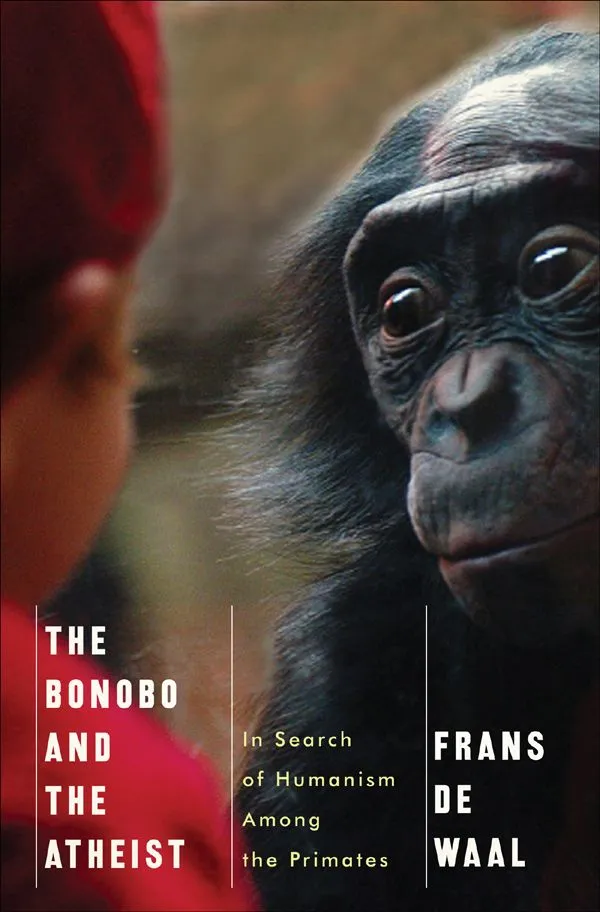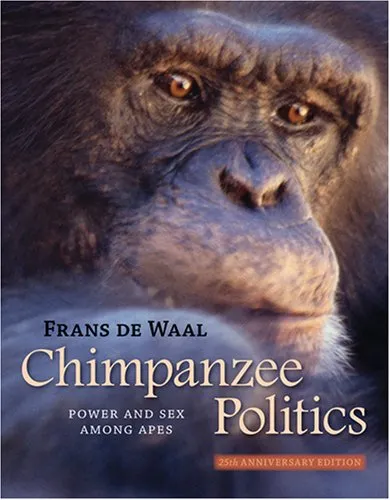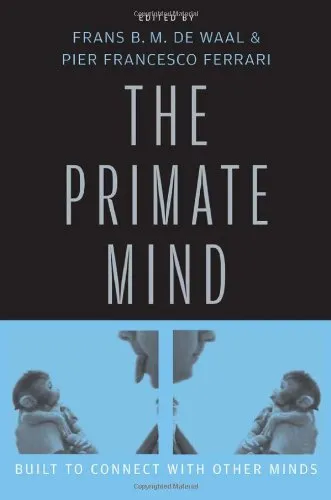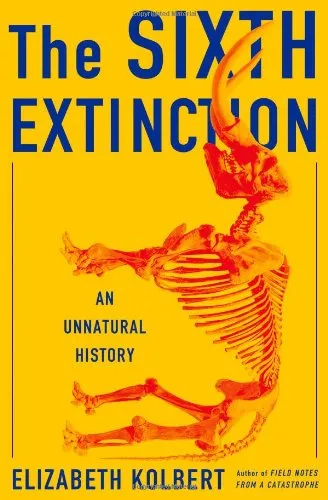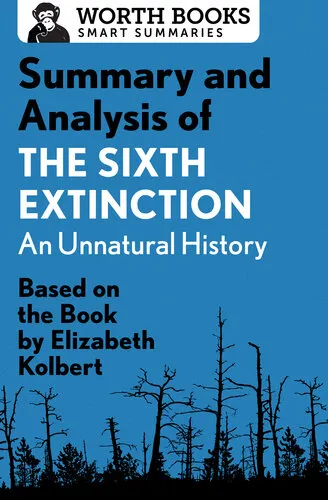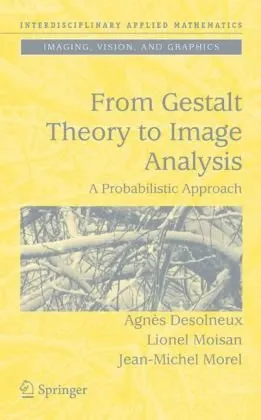The Bonobo and the Atheist: In Search of Humanism Among the Primates
4.7
بر اساس نظر کاربران

شما میتونید سوالاتتون در باره کتاب رو از هوش مصنوعیش بعد از ورود بپرسید
هر دانلود یا پرسش از هوش مصنوعی 2 امتیاز لازم دارد، برای بدست آوردن امتیاز رایگان، به صفحه ی راهنمای امتیازات سر بزنید و یک سری کار ارزشمند انجام بدینکتاب های مرتبط:
معرفی کتاب
کتاب "The Bonobo and the Atheist: In Search of Humanism Among the Primates" اثر فرانس د وال، به بررسی رابطه اخلاقیات انسانی با رفتارهای میمونهای Bonobo و سایر Primates میپردازد. این کتاب تلاش دارد تا اثبات کند رفتارهای اخلاقی و انسانی ضرورتاً وابسته به مذهب و دین نیستند و در طبیعت حیواناتی چون Bonobo نیز دیده میشوند.
خلاصهای از کتاب
کتاب از منظر زیستشناسی و رفتارشناسی نگاهی تازه به اخلاقیات دارد. د وال در این اثر به تحقیق درباره رفتارهای اجتماعی و همدلی در میان Bonoboها پرداخته و نشان میدهد که این حیوانات بسیاری از خصایص اخلاقی که در انسانها ارزشمند شمرده میشوند را دارا هستند. رفتارهایی چون همکاری، حس همدلی و حتی بخشش در میان Bonoboها مشاهده میشود، که نشاندهنده غریزی بودن این احساسات است. این تحلیلها چالشهایی را در برابر دیدگاههای سنتی درباره منبع اخلاقیات در انسانها مطرح میکنند.
نکات کلیدی
- اخلاقیات میتواند ریشه در طبیعت و رفتارهای اجتماعی حیوانات داشته باشد و وابسته به مفاهیم دینی نباشد.
- همدلی و همکاری از رفتارهای طبیعی در میان Primates هستند که میتوانند در جوامع انسانی نیز نقش بنیادینی ایفا کنند.
- الگوی زندگی و رفتارهای اجتماعی Bonoboها میتواند الگویی برای فهم بهتر روابط انسانی و تقویت اخلاقیات باشد.
نقلقولهای مشهور از کتاب
"اخلاقیات نمیتواند تنها بر پایه مذهب بنا شود؛ بلکه در طبیعت، حیوانات نیز بهگونهای این رفتارها را به نمایش میگذارند."
"همدلی و اخلاقیات نهتنها سازهای انسانی، بلکه خصیصهای جهانی در میان موجودات زنده است."
اهمیت این کتاب
این کتاب بهخاطر درک جدیدی که از منشأ اخلاقیات ارائه میکند، بسیار حائز اهمیت است. با تحقیق در رفتارهای اجتماعی حیوانات، د وال نشان میدهد که نیاز به بازنمایی ریشههای اخلاقی انسان فارغ از مذهب، امری ضروری است. این اثر میتواند به درک عمیقتری از معنای انسانیت و توسعه ارزشها در جوامع انسانی کمک کند. بهعنوان منبعی ارزشمند برای محققان علوم اجتماعی و انسانی، "The Bonobo and the Atheist" مسیری جدید برای تأمل درباره روابط انسانی و طبیعت پایهگذاری میکند.
Welcome to 'The Bonobo and the Atheist: In Search of Humanism Among the Primates,' a captivating exploration of the roots of human morality through the lens of primate behavior. Written by renowned primatologist Frans de Waal, this book delves deep into the intrinsic values that connect humanity and animal kin, shedding light on the nature of morality and its origins. By examining our closest primate relatives, the bonobos and chimpanzees, de Waal presents a compelling argument on how empathy, cooperation, and moral virtues evolved among primates and their implications for human society.
Detailed Summary of the Book
'The Bonobo and the Atheist' offers readers a unique perspective on the age-old debate about the foundation of human moral behavior. Frans de Waal begins by contrasting two of our closest relatives: the chimpanzees, known for their competitive and aggressive behavior, and bonobos, recognized for their nurturing and peaceful nature. Through this comparison, he reveals how bonobos exhibit levels of empathy, reciprocity, and cooperation akin to human moral behavior.
De Waal then explores the implications of these observations for understanding human morality. He challenges the notion that morality is solely a construct of human culture or religion, suggesting instead that moral behaviors have evolutionary roots. By presenting evidence from a wide array of primate studies, he argues that human morality has biological underpinnings shaped by natural selection and that these virtues can be seen in our primate counterparts.
The book also delves into the role of religion in moral development and societal cooperation. De Waal posits that while religion may fortify morality, it is not the origin. Instead, he suggests that morality emerged naturally in the course of evolution, as social bonds and group cohesion fostered survival. Through witty and insightful narratives, de Waal invites readers to reconsider their perceptions of ethics, religion, and what it means to be a moral being.
Key Takeaways
- Empathy and moral behaviors are not exclusive to humans; they are evident in other primates, particularly bonobos.
- Morality can be viewed as an evolutionary adaptation that promotes cooperation and social harmony.
- Religion may play a role in shaping moral norms but is not the origin of moral behavior.
- Understanding our primate relatives can provide valuable insights into human nature and ethics.
Famous Quotes from the Book
"Human morality is unthinkable without empathy."
"We have evolved to care about others as part of our basic nature."
"Religion may fill gaps in moral reasoning but does not itself beget morality."
Why This Book Matters
'The Bonobo and the Atheist' is pivotal in the ongoing conversation about the origins and nature of morality. By emphasizing the evolutionary roots of moral behavior, Frans de Waal challenges the traditional belief that morality is solely a human or divine construct. His insights compel us to look beyond cultural and religious paradigms to understand the instinctual facets of our ethical behavior. The book's comparative approach, showcasing the behaviors of bonobos and chimpanzees, furthers our understanding of humanity's place in the natural order.
This book is not only a significant contribution to science and philosophy but also to the wider cultural discourse on human behavior. It bridges the gap between understanding animals and understanding ourselves, encouraging a more profound respect for the natural world and our connection to it. By grounding morality in evolutionary science, de Waal provides a refreshing perspective on the forces that shape altruism and ethics in our societies.
دانلود رایگان مستقیم
شما میتونید سوالاتتون در باره کتاب رو از هوش مصنوعیش بعد از ورود بپرسید
دسترسی به کتابها از طریق پلتفرمهای قانونی و کتابخانههای عمومی نه تنها از حقوق نویسندگان و ناشران حمایت میکند، بلکه به پایداری فرهنگ کتابخوانی نیز کمک میرساند. پیش از دانلود، لحظهای به بررسی این گزینهها فکر کنید.
این کتاب رو در پلتفرم های دیگه ببینید
WorldCat به شما کمک میکنه تا کتاب ها رو در کتابخانه های سراسر دنیا پیدا کنید
امتیازها، نظرات تخصصی و صحبت ها درباره کتاب را در Goodreads ببینید
کتابهای کمیاب یا دست دوم را در AbeBooks پیدا کنید و بخرید
1354
بازدید4.7
امتیاز0
نظر98%
رضایتنظرات:
4.7
بر اساس 0 نظر کاربران
Questions & Answers
Ask questions about this book or help others by answering
No questions yet. Be the first to ask!
